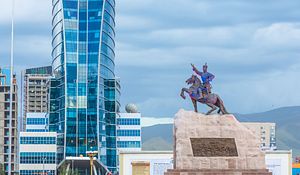Recent years have brought many prominent examples of political mobilization online, but most future growth in Internet users will come in countries with repressive and authoritarian regimes. Some democracies are attempting to mobilize soft power to reinforce real security concerns about less-than-friendly regimes around the world, and especially in Asia.
The Freedom Online Coalition (FOC) is one such vehicle, gathering like-minded countries to promote the applicability of rights-based approaches to our online existence. It meets annually, this year in Ulaanbaatar, Mongolia. The conversations it encourages are particularly important in the post-Snowden era, since revelations of widespread mass surveillance have triggered widespread anxiety about violations of human rights.
The FOC was founded December 2011 by 15 countries as a Dutch initiative to advance the cause of ensuring that human rights are respected online as much as they are offline. The membership comprises mostly European and North American countries, but it does include a sprinkling of members from Africa, the Americas, Asia, and the Middle East.
Mongolian President Tsakhiagiin Elbegdorj opened the conference on May 4. The president presented a rosy image of the state of online freedom in Mongolia. He also clearly positioned the conference as yet another step in Mongolia’s strategy to engage powerful democracies around the world.
Some of the topics covered at the FOC this year related to the Shanghai Cooperation Organization, personal liability for journalists online/offline, and the role of international institutions in the cyber security realm, with the goal of establishing recommendations for good online policy and a free and secure Internet.
The conference also considered some of the challenges inherent in multi-stakeholder dialogues that come together around an issue that is at once specific – how do we balance the need to combat child pornography while safeguarding pseudonimity and commercial transactions, for example – and lofty and ambitious – what can we learn from the impact of printing technology in the 16th century to avoid mistakes in regulating online communication?
While governments initiated the FOC and participate, they are largely represented by human rights divisions in their foreign ministries, who in turn are only somewhat connected with government units that are pushing for a securitization of the Internet. Some civil society representatives were clearly frustrated at a perceived absence of concrete steps taken by governments in line with the lofty goals expressed at the conference.
Fundamental political values, such as freedom of expression and press, nonarbitrary regulations, an open and free Internet, transparency, and opposition to censorship, were discussed during the opening and closing speeches. These democratic ideals bind the members of the coalition together and encourage a positive environment for human rights in cyberspace. While such values are easily accepted on a philosophical level in a club of like-minded nations, the question is how they are implemented and executed in practice. During the two conference days, voices from civil society expressed concerns at how these goals of a free and equal Internet will be translated in different cultural circumstances, especially given individual pressures that national governments face from their own civil society groups and other governments.
It is noteworthy that this conference was held in the Asia-Pacific region for the first time and in a country that borders two geopolitical powers that are very unlikely to apply for membership in a Coalition for Online Freedom, Russia and China. The Asian membership in the FOC is limited to founding member, Mongolia, and more recent members, Japan and the Maldives. In recent years, Thailand and China have been only the most prominent examples of censorship of online and offline expression, while similar practices are common across the region.
Consideration of criteria for FOC membership as it was hinted at in closing discussions at the conference is thus especially important in the Asian context, where the provision of true freedom online may have an important signalling function regionally. Other recommendations included a stronger focus on effective oversight, transparency and cooperation among civil society, academia, and the corporate sector.
Julian Dierkes has a close eye on economic and political developments in Mongolia. He teaches at the University of British Columbia in Vancouver, Canada. @jdierkes. Trevor Kennedy focuses on security issues and the political economy of Northeast Asia. He is a M.A. Candidate in Asia Pacific Policy Studies (MAAPPS) at the University of British Columbia. @TrevorPKennedy. Melanie Schweiger specializes in Internet governance and policy, as well as broader cyber security issues in South Asia. She is a M.A. Candidate in Asia Pacific Policy Studies at the University of British Columbia. @CyberNewsIndia. Christina Toepell concentrates on global governance and economic development in Southeast Asia. She is a M.A. Candidate in Asia Pacific Policy Studies at the University of British Columbia. @ctoepell.

































